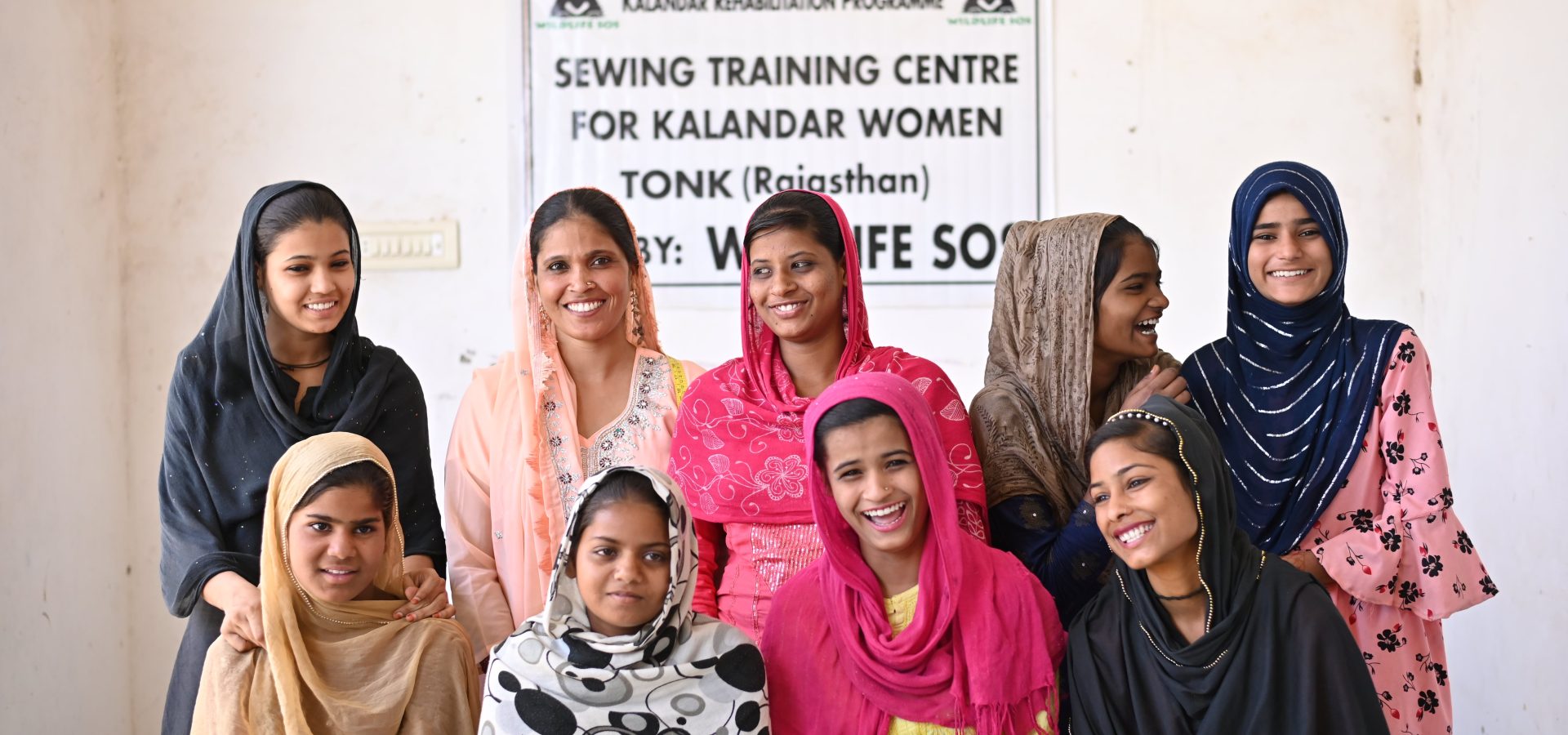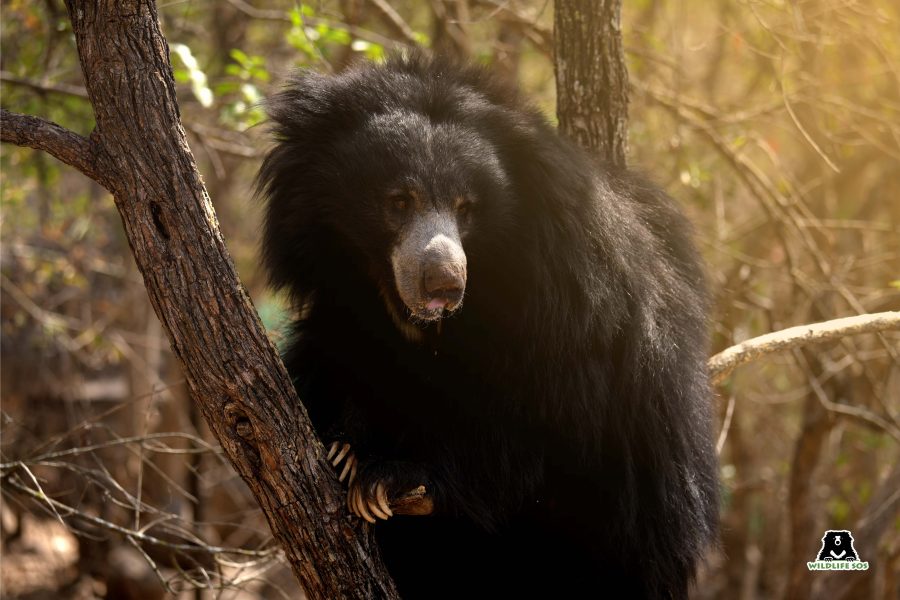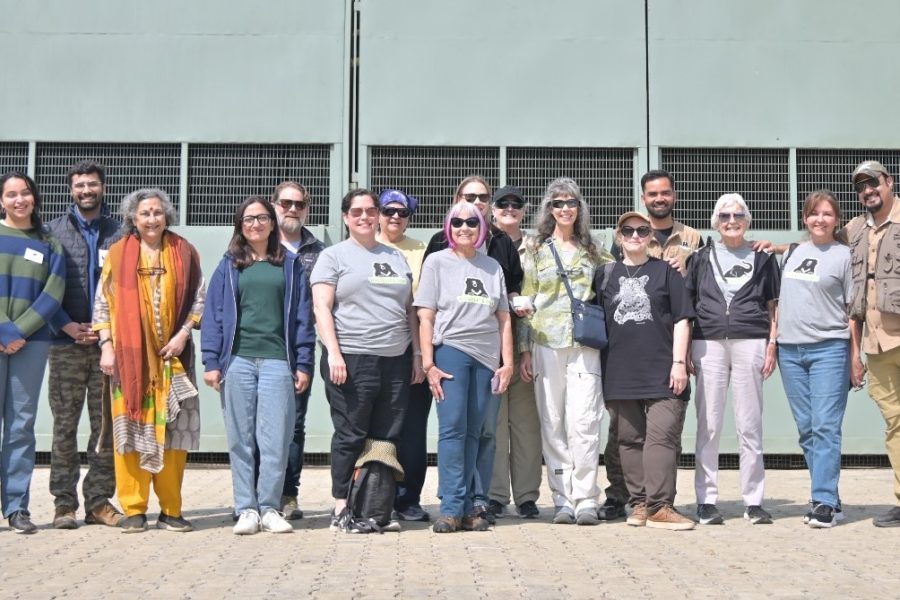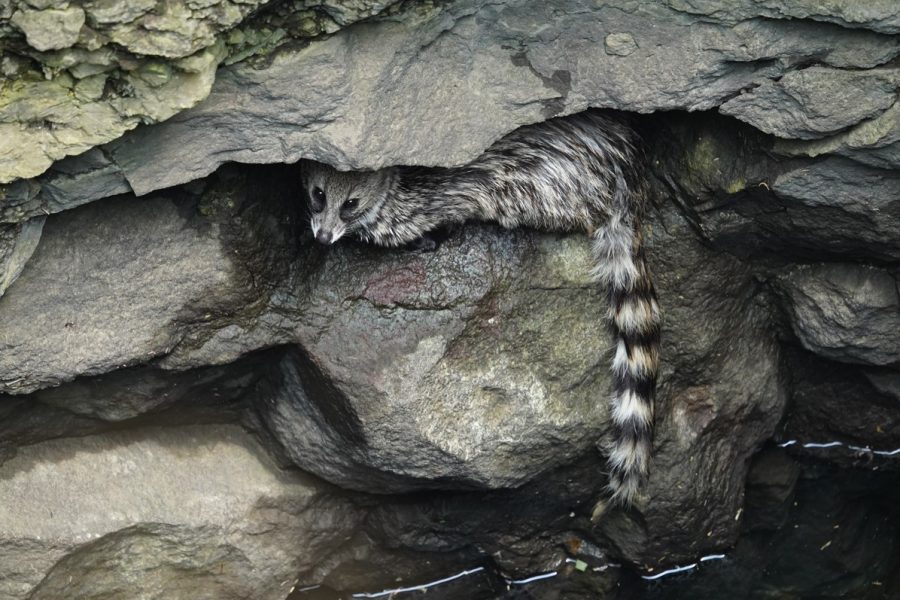The Kalandar community has been traditionally known for taming sloth bears for the archaic practice of ‘dancing’ bears. For years, their livelihood depended on the subjugation of sloth bears, perpetuating a harmful activity that not only endangered wildlife, but deprived the people of dignity and opportunity as well. The cycle of poverty and illiteracy barred any chance for their betterment.
In 1995, Wildlife SOS embarked on a groundbreaking mission to rescue not only the ‘dancing’ bears, but also the communities whose lives were intricately linked with theirs. The Tribal Rehabilitation Programme emerged as a transformative initiative, seeking to address the root causes of exploitation of the bears by uplifting the marginalised Kalandar community residing in Madhya Pradesh, Rajasthan, Uttar Pradesh, Haryana and West Bengal.
The journey began with sensitivity and great understanding. The founders of Wildlife SOS immersed themselves in the lives of the Kalandar community, living among them to comprehend their struggles, hopes, and aspirations. What they unearthed was a tale of deprivation, desperation, and a lack of viable alternatives. Making bears ‘dance’ was not a choice, but the only ability they could employ to eke out a meagre existence in the face of adversity.
Driven by a vision of holistic conservation, Wildlife SOS recognised that rescuing bears alone would not suffice. A partial approach would instead deprive the community from progressing. The solution lay in empowering the community, providing them sustainable livelihoods, and breaking the shackles of the tradition that perpetuated distress to both Kalandars and the sloth bears. Thus, the Tribal Rehabilitation Programme was born, with a multifaceted approach aimed at fostering economic independence, educational support, and gender equality within the Kalandar community. Since its inception, the programme has rehabilitated approximately 5,000 families.
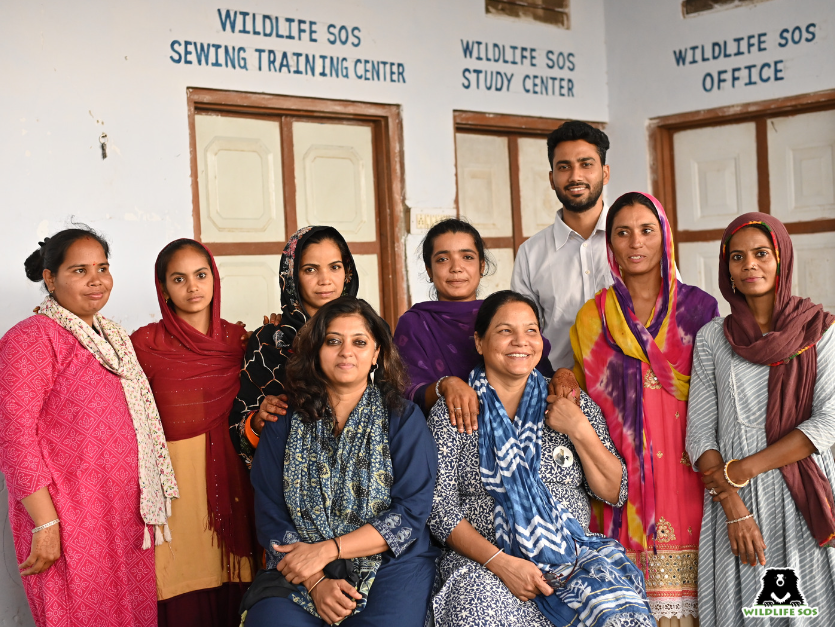
Central to the initiative was the provision of alternative livelihoods. By directing seed funds, skill training, and assistance with marketing, Wildlife SOS enabled Kalandar families transition from a regressive practice to legally acceptable occupations. Rajiya Bee from Talera, Rajasthan, is one among many Kalandar women who have experienced a remarkable and positive change in their lives. With the support of Wildlife SOS, she bartered the life of ‘dancing’ bears by running a peanut stall. This business sustained Rajiya Bee and her family financially. It empowered her to support and educate her children, and secure a brighter future for her loved ones.
The impact of this campaign extended well beyond economic comfort. Education emerged as a catalyst for change, offering Kalandar children a pathway out of poverty and the generational practice of ‘dancing’ bears. Through the provision of educational support that included tuition fees, uniforms, and textbooks, Wildlife SOS ensured that the young generation of the Kalandar community could obtain quality education. Educating children holds the power to improve the impoverished living conditions that had plagued the community for generations.
Gender equality emerged as a cornerstone of the programme, encouraging Kalandar women to become primary breadwinners for their family. Defying patriarchal norms, women were no longer confined to the private realm, and became the advocates of wildlife conservation for their communities. Through their resilience and determination, they have shattered barriers, defied expectations, and modified their communities for the better. By availing vocational training, a plethora of opportunities provided them a chance to secure themselves financially. Through capacity building, skill training workshops, and advocacy against practices like child marriage, Wildlife SOS paved the way for a more equitable and progressive society.
The true measure of success of the programme lies in its inclusive nature, evident in the stories of individuals like Rameen, a Kalandar man, whose journey epitomises the power of financial stability. Living in a temporary tent near a sewage canal, Rameen was terribly poor, and a recovery from this seemed impossible. It was only when Wildlife SOS intervened that he found hope, which came in the form of a bicycle. Rameen is a magician, who can now ride from village to village to show his tricks to people, and earn sufficient money from his shows. For Rameen, his bicycle is indispensable, and has eliminated travelling expenses.
As Wildlife SOS began to eradicate the community’s dependency on sloth bears, a ripple effect was set in motion across the country. Kalandar men and women, previously engaged in poaching and training sloth bears, made their way to the NGO’s bear rescue centres to willingly surrender their bears for a chance at a better life for themselves and their animals. As community awareness increased, former poachers transformed into becoming protectors of bears! As caregivers at the Wildlife SOS Agra Bear Rescue Facility, they now diligently safeguard sloth bears that had been once hunted.
The Kalandar community discovered a sense of fulfilment in stable occupations. Pride swelled as their children could finally attend school, and women contributed to household income. The impact of the Tribal Rehabilitation Programme had reached every sphere of the Kalandar society, a rewarding result that was beyond what the organisation anticipated.
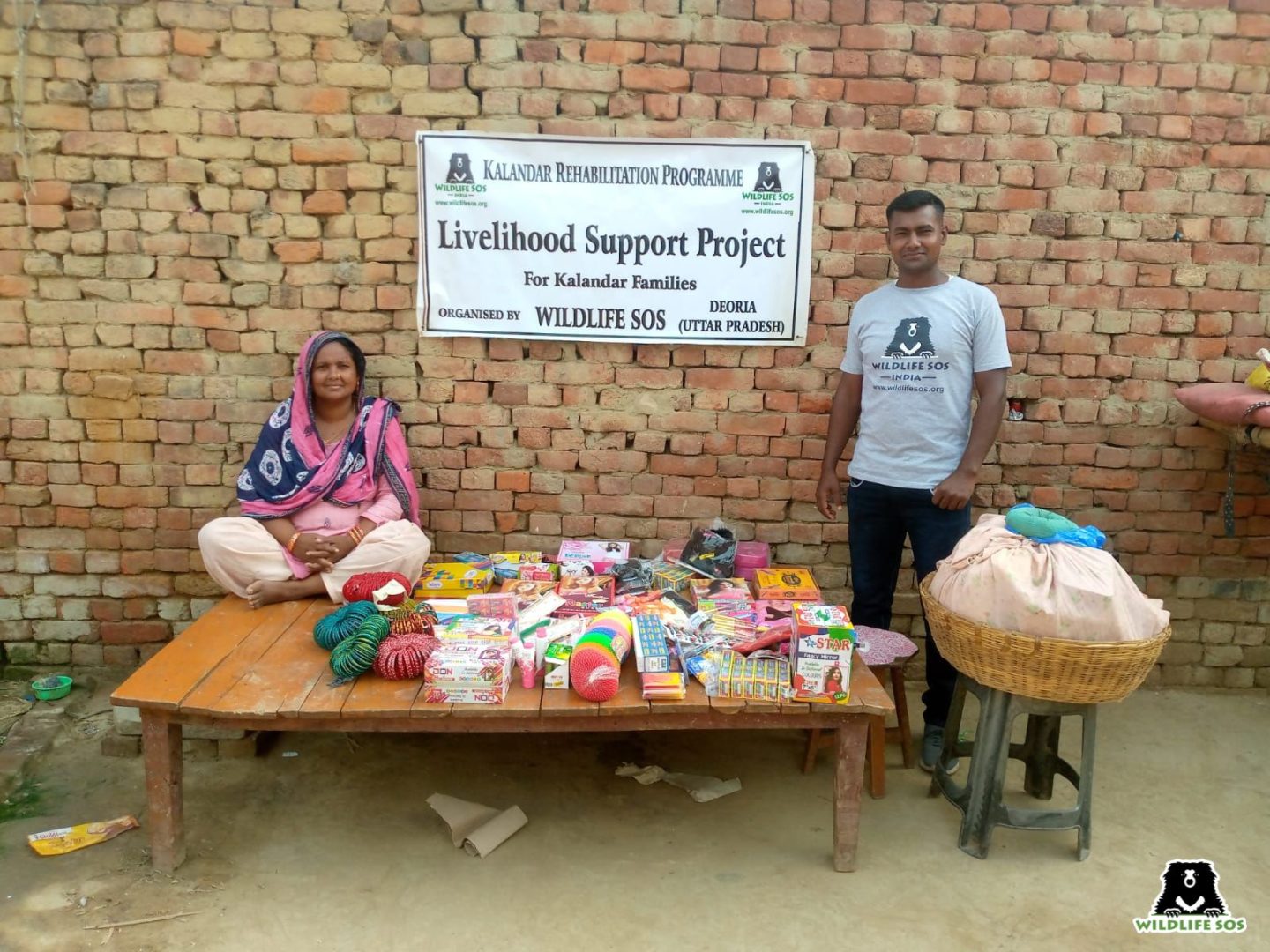
The success boosted the programme to expand its scope, with Wildlife SOS paying close attention to the various pressure points faced by the Kalandar community. Many Kalandar families were living in temporary shanties owing to their nomadic lifestyle. Recognising the pressing need for infrastructure, Wildlife SOS aided the Kalandar tribe to establish their residences. Roofing support was provided, offering secure shelters for families that had long lacked a sense of permanence. This newfound stability instilled a sense of home within the community, marking a significant milestone in their journey towards upliftment.
Amidst observations and intimate interactions, another aspect within the community was found wanting. The Kalandars had been conducting child marriages of young girls. Unable to support the family, this was considered as a solution to lessen their monetary struggles. With awareness campaigns on the prevailing laws, this practice gradually allayed in the community. As part of the marriage support programme offered by Wildlife SOS, assistance is given to women who are at or above the legally marriageable age of 18. Additionally, the organisation recognises how important it is for brides to maintain financial independence post-marriage, and encourages them to continue generating income using acquired skill sets, such as sewing.
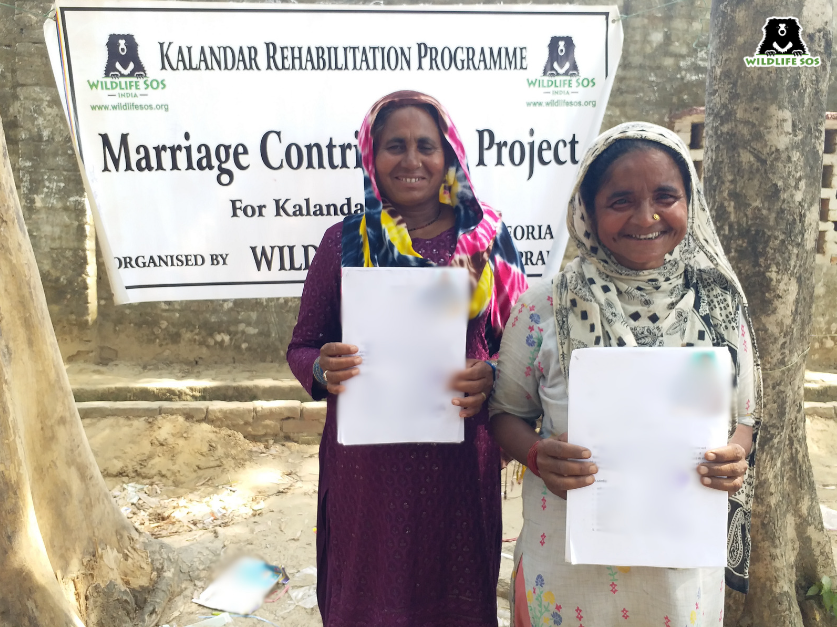
The NGO also identified the urgent need for improved sanitation facilities within the community. Access to clean toilets was not only a matter of basic human dignity, but also crucial for promoting health and well-being of people. In response, the organisation undertook the act to provide structural provisions by constructing toilets, ensuring that Kalandar families had access to hygienic amenities.
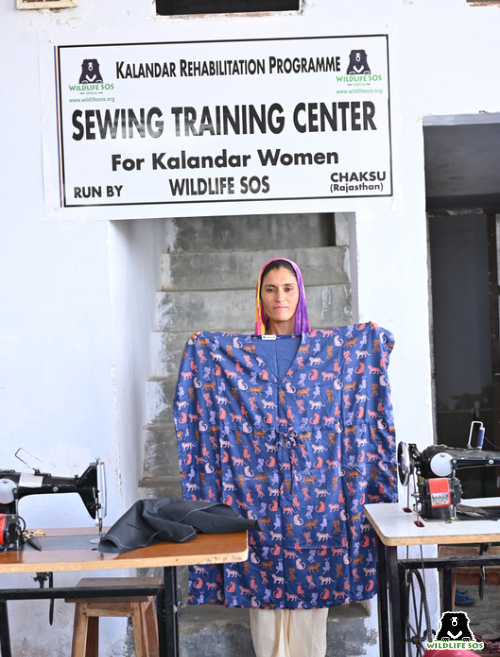
Furthermore, paying attention to the importance of menstrual health, Wildlife SOS launched workshops and discussions for Kalandar women. These aimed to destigmatize menstruation, provide education on menstrual hygiene practices, and embolden women to take control of their reproductive health.
Severe climate change in Rajasthan leads to recurring dry spells, which causes severe distress to the Kalandar community. Wildlife SOS stepped in to address this situation as well. A water support programme was started, which includes access to clean drinking water, provides water tankers to families, and establishes water banks for affected animals during droughts.
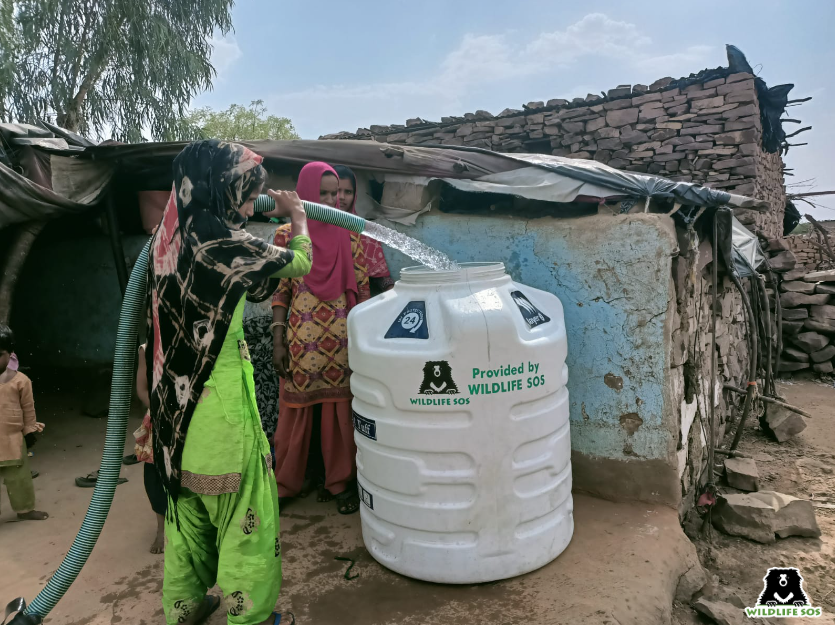
In order to understand why the Kalandar community performed the ‘dancing’ bear practice, Wildlife SOS was apprised of the harrowing reality that its members had been experiencing. The Tribal Rehabilitation Programme, therefore, encompasses compassion, empathy, and solidarity in its steps to benefit the community, and in creating a world where humans and animals coexist in harmony.
To ensure continuous support to the Kalandar community, consider making a donation.

